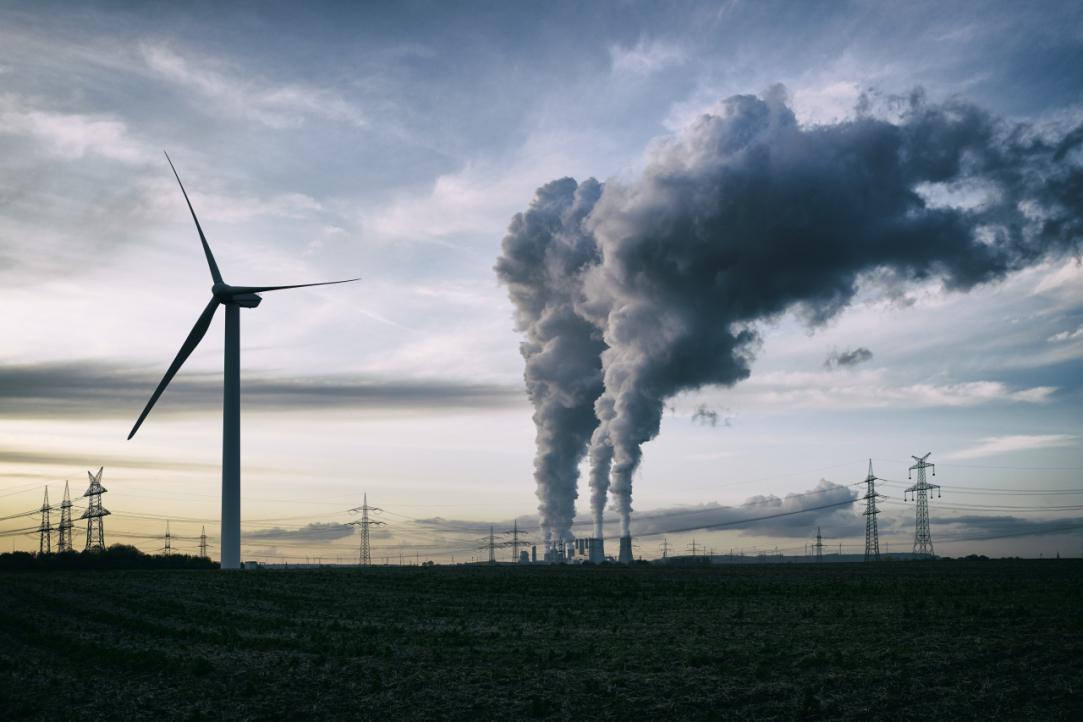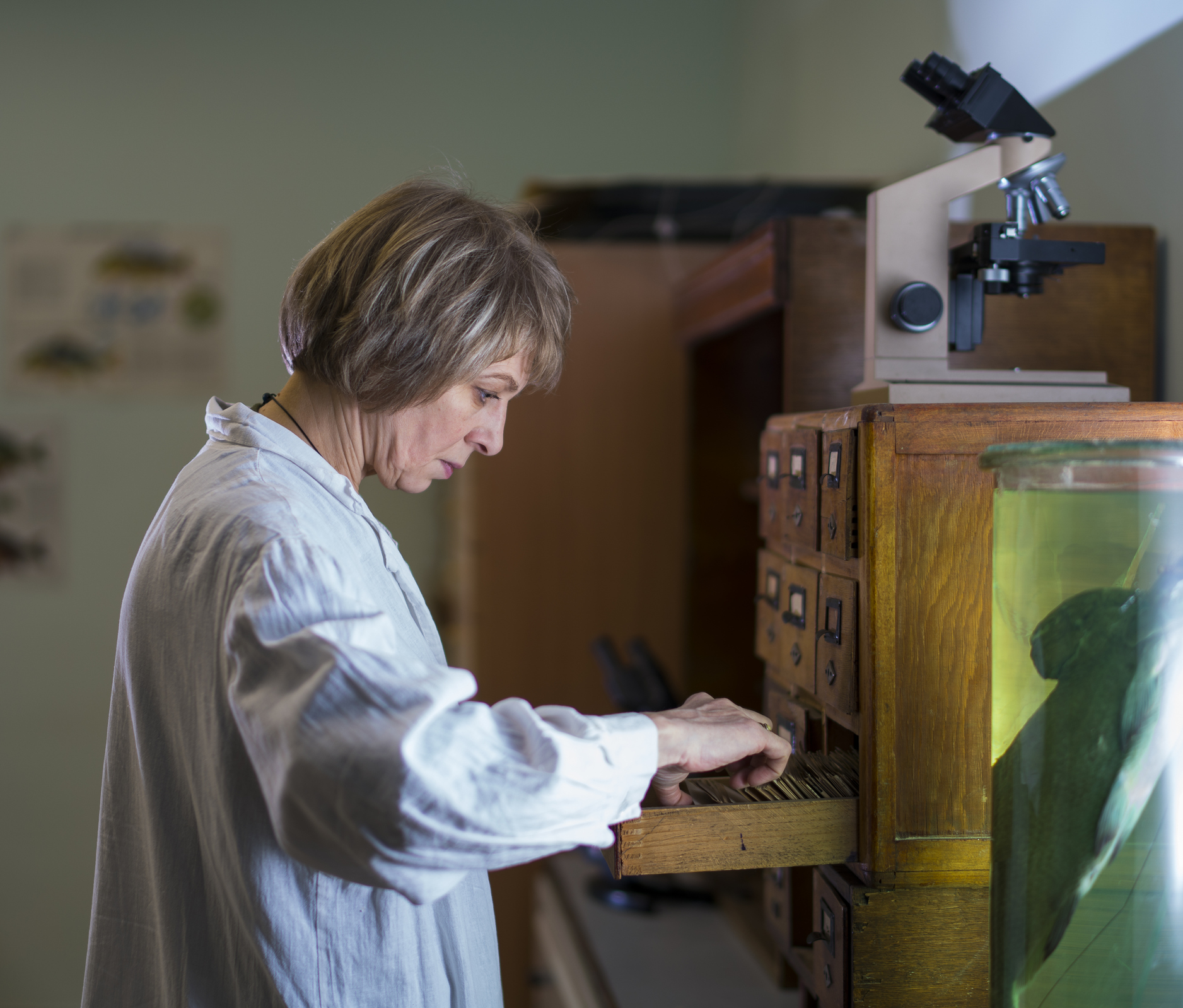Virus Clears Up the Atmosphere: How the Pandemic Has Affected Greenhouse Gas Emissions and Other Consequences of COVID-19 in Russia and the World

Lockdown and economic crisis have led to a drastic reduction of greenhouse gasses emissions in the world. This is one of the key messages of the HSE’s eighth 'coronavirus' newsletter. In addition, experts have evaluated the consequences of COVID-19 for Russian culture, health worker support measures in various countries during the pandemic, the EU economic recovery programme, and other scenarios.
Monitoring of the current economic situation in Russia shows that following a decline in April, the index for basic types of economic activity in May 2020 dropped by 2.8% vs. April and by 12% vs. May last year. This all happened against the background of active epidemiological restrictions and reduced oil production as part of the OPEC+ deal. Family consumption increased slightly compared to May, primarily due to a rise in car purchases.
‘According to our over-cautious estimate, a drop in the GDP in Q2 will amount to 11% vs. year-ago Q2. These estimates are very close to the ones by the Ministry of Economic Development and Trade for April—May. That being said, the official estimated GDP reduction in 2020 (4.8%) is similar to our consensus projections for May (4.3%)’, HSE experts say.
The crisis has forced the authorities of all countries to develop special-purpose programmes aimed at economic recovery. An insight into the measures taken by the EU is provided by the report 'European programme for economic recovery: the EU old goals and new priorities of the next generation’. The overview points out that the basic slogans for the European Commission are: 'Restarting the economy means a leap forward rather than coming back to the pre-crisis level', as well as the need to use 'every available Euro in the EU budget', and all possible 'financial market means to safeguard jobs'.
The EU remedial programme is being implemented in four areas. First of all, supporting member states through investments and reforms. Secondly, promoting private investment. The third element is aimed at tackling specific crisis issues; while the fourth is a recovery strategy and execution of the regional Sustainable Development Goals.
The authorities are ready for higher federal spending and debt in order to protect jobs and come out of recession. The experts believe that it might lead to a sovereign debt crisis. A number of countries do not really have enough financial resources for such moves due to a shortfall in the state budget and a stronger need for support in certain key aareas, for instance, healthcare. Therefore, the subsequent heavier taxation load may become yet another challenge for economic entities. Another possible risk for the European economy could be the implementation of international support programmes on concessional terms for low-income countries affected by the crisis.
HSE experts also investigated the experience of foreign countries in terms of Third Sector state support during the pandemic as well as medical worker support. The most important measures in supporting healthcare providers’ staff at their workplaces were providing personnel with personal protective equipment to perform their work and arranging safe conditions for their rest and meals during working shifts. Equally important were off-job support measures that differ from one country to another. Medical workers received psychological support, childcare assistance, and financial help. They were also given free transport and accommodation.

‘Analysis of the support measures implemented in various countries shows how essential they are at this stage of the pandemic as a factor for protecting medical staff. In the future, this experience should be used to develop additional programmes of psychological support for medical workers, revisit approaches for payroll accounting, etc. to further strengthen healthcare resources’, the authors of the research say.
A noteworthy detail is that during the pandemic, charity turned out to be one of the most vulnerable fields. However, the experts singled out several positive aspects that have affected the the field of non-commercial organizations, namely, exploring new information technologies, joining efforts, optimizing internal processes, revisiting promising activities, and ethical aspects. Research called 'The Pandemic Effect on Non-Commercial Organizations: Positive Changes' addresses this issue.
A key consequence of the pandemic and lockdown is a widespread switch to working from home. The authors of the report 'Remote Work: a New Normality' investigated some specific features of remote work for office workers. While working at home as a result of the lockdown, many respondents reported they had difficulties in finding an adequate work/life balance: 25% of the respondents did not have time for themselves, and 48% mentioned a permanent lack of time. Moreover, the researchers found out that working from home appeared to be less efficient: a third of the respondents reported a fear of not coping up with their professional duties. A total of 28% suffered from constant lack of energy, even when getting enough sleep, and 23% note that it is incredibly difficult for them to complete new tasks.
There are also issues with understanding the importance of their remote work; 39% of the respondents said that they only understood that they were doing something important two to three times a month or less. Along with that, there were issues associated with communication and overall management of the process. Finally, almost 40% of the respondents admitted to being in a permanent state of physical and psychological stress.
To make remote working more efficient, new regulations and programmes have to be developed to ensure psychological adaptation, provide convenient workplaces, and adjust management mechanisms so that people can feel part of their team
‘The results show that this would be an important stimulus to individuals’ performance’, the researchers say.
And now a couple of words about emissions. The COVID-19 quarantine measures and subsequent economic crisis have led to a dramatic reduction in global greenhouse gas emissions. It is estimated that it may be up to 8% lower when compared to 2019. This is mainly due to reduction in, and altered structure of, consumer demand. The carbon footprint of the majority of countries has dropped due to the rejection of the most carbon-intensive components of the market basket such as durable goods and transportation services. In addition, the production shutdown has also made a contribution to emission reduction. This is one of the points covered by the review 'COVID-19 and greenhouse gas emissions'.
HSE experts believe that the events of 2020 are likely to jump-start de-carbonization and energy transition in some countries and world regions and increase the lag in others. For example, having established a regulatory and legal framework for further development of low-carbon energy, the EU has the greatest chance of seizing the crisis moment to speed up the green transition and strengthen energy security and reduce emissions.
However, other countries, including the US and China, are in no rush to give up their fossil fuel. The US is now easing regulation of the oil and gas industry. The Chinese economic recovery programme in the short term will lift a number of restrictions for coal-fired power stations, and coal mines will restart. The authors also believe that, in their efforts to overcome the crisis, many developing countries are highly likely to give preference to the most affordable sources of energy, primarily coal, oil, and gas.
See also:
HSE Biologists Explain Mechanism behind Coronavirus Evolution
A team of researchers, including scientists of the HSE Faculty of Biology and Biotechnology, have analysed the evolutionary path of the coronavirus from the Wuhan variant to Omicron. Their findings indicate that many genomic mutations in SARS-CoV-2 are shaped by processes occurring in the intestines and lungs, where the virus acquires the ability to evade the inhibitory effects of microRNA molecules. The study findings have been published in the Journal of Medical Virology.
Russian Researchers Explain Origins of Dangerous Coronavirus Variants
HSE researchers, in collaboration with their colleagues from Skoltech and the Central Research Institute for Epidemiology, have uncovered the mechanisms behind the emergence of new and dangerous coronavirus variants, such as Alpha, Delta, Omicron, and others. They have discovered that the likelihood of a substitution occurring at a specific site of the SARS-CoV-2 genome is dependent on concordant substitutions occurring at other sites. This explains why new and more contagious variants of the virus can emerge unexpectedly and differ significantly from those that were previously circulating. The study’s findings have been published in eLife.
HSE Biologists Prepare Strategy for Universal COVID Test
Russian researchers have developed a strategy to create a cheap and rapid COVID-19 test based on isothermal amplification. According to their publication in Applied Biochemistry and Microbiology, use of this strategy will make it possible to create universal test systems for any of the COVID-19 variants.
People’s Values Affect Their Attitudes to COVID-19 Restrictions
HSE social and political analysts have established which value models and circumstances promote support for restrictive government policies aimed at combatting the coronavirus pandemic. The research is published in Plos One.
Model of Predator-Prey Relationship Helps Predict Spread of COVID-19
Researchers from the HSE Faculty of Economic Sciences have proposed a mathematical model that describes the course of the COVID-19 pandemic, taking into account the restrictions applied in different countries. The model will help governments make reasonable and timely decisions on introducing or lifting restrictions. The paper was published in Eurasian Economic Review.
HSE University Classes to Be Held On Site for All Students
Classes in the new academic year will take place on site for students of all HSE University campuses. Existing COVID safety precautions will remain in effect.
Russian Scientists Investigate the Immune Response to SARS-CoV-2 Variants
HSE University researchers assessed the effectiveness of the T-cell immune response to 11 variants of SARS-CoV-2. Their findings have been published in Nucleic Acids Research.
First-year Students Will Be Able to Get COVID Shots at HSE University
The new regulations ‘On the Organization of Studies for the 2021/2022 Academic Year’ feature in detail what will change for first-year students in the new academic year. HSE University will be organizing a vaccination drive in September for students aged 18 and over who are unvaccinated. Younger students will be eligible for vaccination once they turn 18.
New Safety Measures to Be Introduced at HSE University
Starting September 1, 2021, HSE University-Moscow is introducing new safety policies on campus to prevent the spread of COVID-19. They apply to students over 18 years old who have not had COVID during the last six months, have not been vaccinated (with a Russian or a foreign vaccine), nor have a medical exemption from vaccination. Free vaccination will be available on campus to all arriving students.
HSE University Creates the Viral Genealogy Simulator to Model the Spread of COVID-19
Researchers of HSE Tikhonov Moscow Institute of Electronics and Mathematics (MIEM), in cooperation with their colleagues from the University of California, Santa Cruz (UCSC), and The European Bioinformatics Institute (EMBL-EBI), have developed software to model the spread of the COVID-19 global pandemic. This is the world’s fastest Viral Genealogy Simulator (VGsim). For more details about this scalable simulator, read the reprint on medRxiv. The code is freely available at GitHub.


